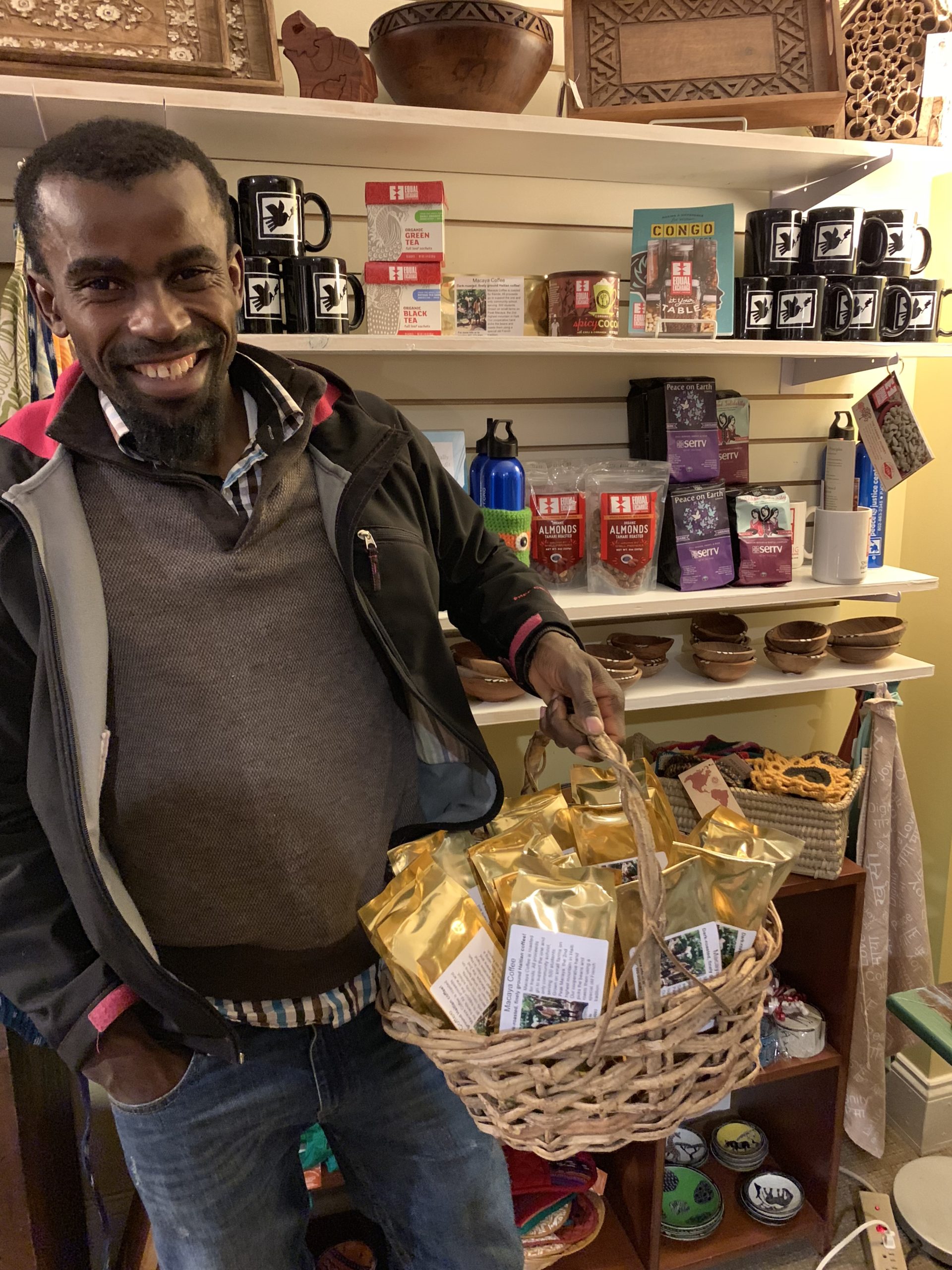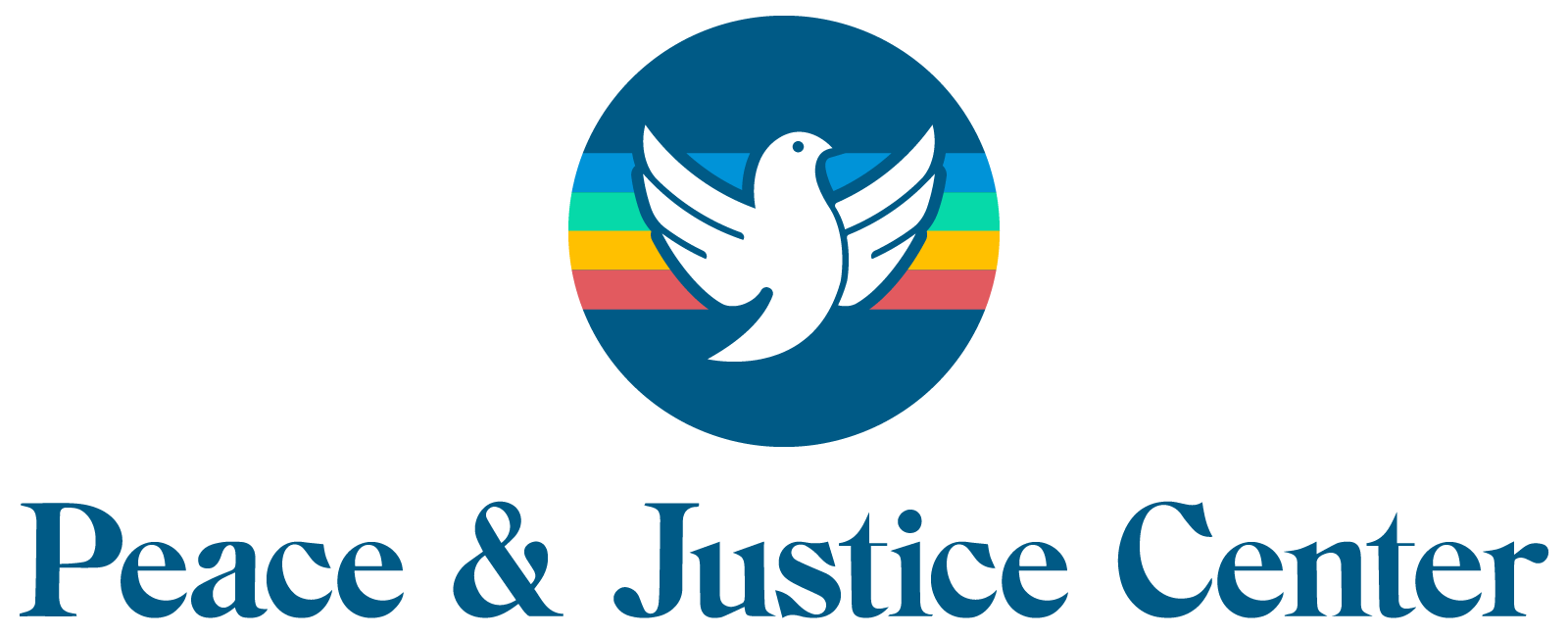-Alex Rose, Volunteer Coordinator and Assistant Store Manager
Pierrevy Polyte is an artist, coffee farmer, and founder of a worker cooperative that now has more than 800 members. Pierrevy is from Haiti and has been living in Burlington, Vermont since 2016. He is one of the Peace & Justice Centers more recent vendors, selling coffee and mixed media art as a result of a direct trade partnership. I recently had the pleasure of sitting down with Pierrevy for an interview. I wanted to not only to learn more about his products, but to know more about the inspiration behind all he does.
To begin to understand how Pierrevy got to where he is today, one must first understand his homeland of Peak Macaya, Haiti. Peak Macaya is the second tallest mountain region in Haiti, and home to the country’s last area of cloud forest– characterized as a tropical and moist climate at high altitudes. This region is rich with biodiversity and extremely delicate in the shaky hands of climate change. In fact, Pierrevy and his community are still repairing from the devastation of Hurricane Matthew in 2016.

Pierrevy grew up around coffee. Having learned the trade and growing techniques from his father, he and his brother Otheniel expanded the family coffee production into a model that supports and involves their community. In Peak Macaya, land is an invaluable asset passed down through generations that is a common and accessible resource. It can be traded for more space to grow coffee in mutually beneficial transactions. Pierrevy has created opportunities for his community by utilizing the land to create small-scale trades between neighbors. As the volume of coffee and profit grew, Pierrevy was able to invest even more into his community. This investment was in education. In 2005, he founded a school that started with just 25 students that teaches relevant subjects like environmental education. Today that school is home to more than 500 students.
Throughout my conversation with Pierrevy, there was a clear emphasis on the importance of sharing. Seeds of fruitful coffee plants are shared with neighbors so they can start their own crops, alleviating poverty in the area. 30 of the farmers of Peak Macaya coffee now sit on the board of the cooperative, overseeing its 800 members and others who are employed indirectly. In the extremely rural area of Peak Macaya, small-scale industries have a difficult time making entry into the global market. With a business model that centers neighbors and community, Pierrevy has been able to share and distribute the collective success of his shade-grown coffee.
When I asked Pierrevy about what’s next, he did not falter in his response: “First of all, I believe in the future. More coffee is less poverty and more education.” When you purchase a product like Peak Macaya Coffee, yes, you get a great product, but even more so, you support great people.
Visit the Peace & Justice Store to pick up some of Pierrevy’s coffee and fine art. Stop by the Daily Planet restaurant to see Pierrevy’s artwork now on display.
